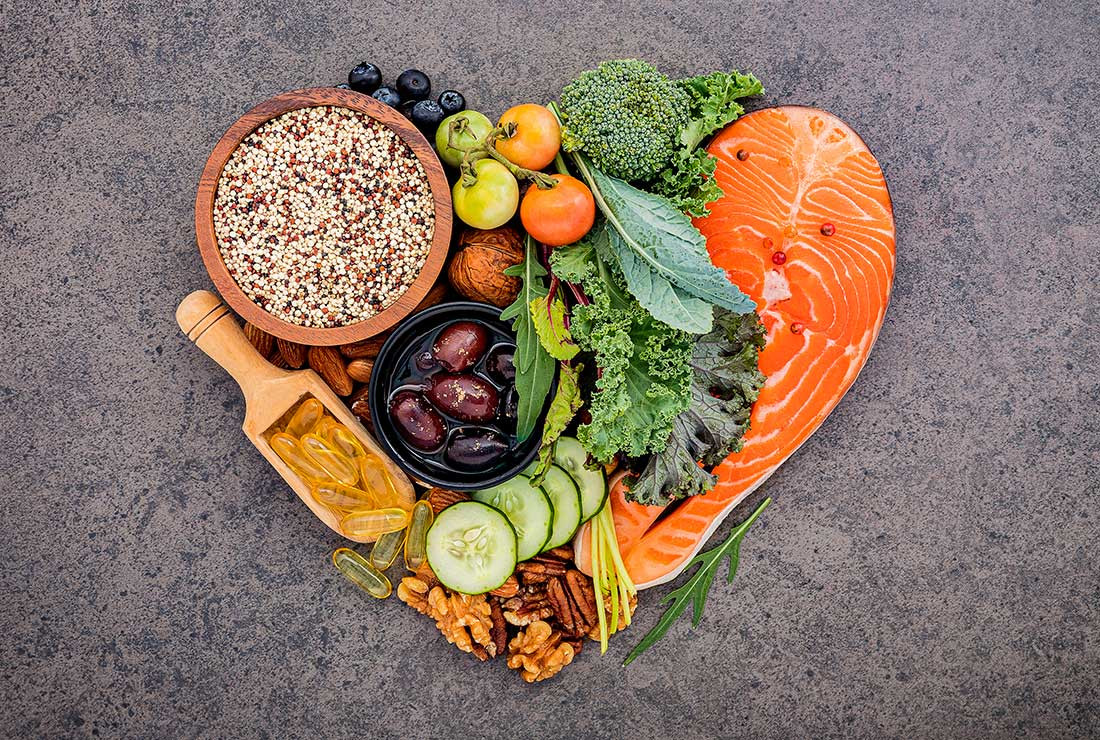5 Creative Plant Based Chicken Dishes That Go Beyond the Basics
5 Creative Plant Based Chicken Dishes That Go Beyond the Basics
Blog Article
All Concerning Healthy And Balanced Food: Advantages of Checking Out Plant Based Alternatives
The discussion surrounding plant-based diets has gained substantial attention recently. Several people are exploring the prospective health and wellness benefits, nutritional benefits, and environmental impacts associated with these nutritional options. As individuals come to be extra conscious of their food's influence on health and sustainability, inquiries emerge regarding the functionalities of taking on such a way of living. What details modifications can one expect, and just how might these options reshape not just individual health and wellness however also the earth's future?
Comprehending Plant-Based Diet Plans
Although lots of people link plant-based diet plans mainly with vegetarianism or veganism, these diets can incorporate a large variety of consuming patterns that focus on entire, minimally refined plant foods. Such diets typically consist of fruits, veggies, whole grains, nuts, seeds, and vegetables, while limiting or removing pet products. This flexibility allows people to customize their nutritional choices according to individual choices and dietary requirements. Some may take on a primarily plant-based diet plan while still periodically consuming meat or milk, frequently described as a flexitarian strategy. The focus stays on integrating even more plant foods, which can bring about a diverse selection of meals and flavors. Comprehending these numerous analyses of plant-based consuming is important for valuing its availability and appeal in contemporary food culture.
Health And Wellness Conveniences of Plant-Based Foods
The wellness advantages of plant-based foods are significant, using a nutrient density advantage that sustains total wellness. Research study indicates that these foods can enhance heart wellness and play an essential role in effective weight administration. By integrating a lot more plant-based alternatives, people may improve their nutritional options and advertise long-term health.
Nutrient Density Advantage
Nutrient density plays a necessary duty in the wellness advantages of plant-based foods, making them an engaging option for those looking for a well balanced diet plan. Plant-based foods, such as fruits, vegetables, legumes, nuts, and whole grains, are typically rich in vital vitamins, minerals, and anti-oxidants while being reduced in calories. This high nutrient thickness enables individuals to consume fewer calories while still meeting their dietary demands. Furthermore, these foods are loaded with dietary fiber, promoting digestive wellness and aiding in weight administration. By incorporating nutrient-dense plant-based options, customers can improve their general health and wellness, support their body immune systems, and minimize the danger of chronic diseases. Inevitably, the nutrient density of plant-based foods underscores their value in a health-conscious lifestyle.
Heart Wellness Enhancement

Weight Management Support
In enhancement to promoting heart wellness, a plant-based diet plan can considerably assist in weight management. This dietary approach stresses whole foods such as fruits, veggies, legumes, nuts, and whole grains, which are normally lower in calories and greater in fiber compared to animal-based products. The high fiber web content helps raise satiety, lowering overall calorie consumption. Additionally, plant-based diet regimens are commonly abundant in vital nutrients while reduced in undesirable fats, making it less complicated to maintain a healthy weight. Plant Based Beef. Study suggests that people that adopt a plant-based way of life tend to have reduced body mass indexes (BMIs) and experience even more effective weight reduction compared to those that consume meat-heavy diet plans. Subsequently, welcoming plant-based options is a strategic choice for efficient weight monitoring
Nutritional Worth of Plant-Based Components
Plant-based active ingredients are abundant in essential nutrients, providing a diverse range of vitamins, minerals, and antioxidants that add to total health. A contrast of healthy protein sources reveals that while animal items are typically considered as remarkable, several plant-based alternatives provide adequate healthy protein and various other valuable compounds. Understanding the nutritional value of these active ingredients can aid individuals make informed view nutritional selections.
Essential Nutrients in Plants
Nutrient-rich active ingredients discovered in plants offer a varied array of important minerals and vitamins that contribute greatly to total health and wellness. These ingredients are abundant in vitamins A, C, and K, which support immune function, vision, and blood clotting, respectively. Additionally, plants provide important minerals such as potassium, magnesium, and calcium, crucial for heart health and wellness, muscle function, and bone toughness. The visibility of fiber in plant-based foods help food digestion and promotes a healthy intestine microbiome. Anti-oxidants, found perfectly in vegetables and fruits, aid battle oxidative anxiety and decrease swelling. Additionally, many plant foods are reduced in calories yet high in nutrients, making them an exceptional choice for those looking for to maintain a healthy and balanced weight while making sure optimal nutrient intake.
Comparing Protein Sources
Protein sources vary substantially in their dietary profiles, with plant-based ingredients providing distinct benefits. Unlike animal proteins, which often contain saturated fats and cholesterol, plant proteins have a tendency to be lower in these harmful parts. Legumes, nuts, seeds, and entire grains are abundant in necessary amino acids, fiber, vitamins, and minerals. Lentils give high healthy protein content along with considerable iron and folate, while quinoa is Website a total protein, using all nine crucial amino acids. Additionally, plant-based healthy proteins are commonly accompanied by anti-oxidants and phytochemicals that support overall wellness. The shift to plant-based healthy protein sources not just improves nutritional consumption but additionally lines up with sustainable dietary practices, lowering environmental effect and promoting long-term health advantages.
Environmental Effect of Plant-Based Consuming
As awareness of climate modification expands, numerous individuals are checking out lasting dietary options that can substantially decrease their environmental impact. Plant-based eating has become a considerable contributor to minimizing greenhouse gas emissions, which are primarily related to animals production. The farming of fruits, grains, vegetables, and vegetables typically requires fewer sources, such as water and land, compared to animal farming. Furthermore, plant-based diets can lead to lowered deforestation, as less land is required for grazing animals or expanding animal feed. By moving in the direction of plant-based alternatives, consumers can support biodiversity and promote much healthier ecosystems. In general, accepting plant-based eating not just benefits personal wellness however additionally represents a vital action towards ecological sustainability and preservation initiatives.
Overcoming Common Misconceptions
While numerous individuals recognize the benefits of a plant-based diet, numerous false impressions usually hinder them from completely welcoming this way of living. An usual idea is that plant-based diet plans lack sufficient protein; however, various plant resources, such as vegetables, nuts, and tofu, supply enough healthy protein. Additionally, some assume that this diet plan is pricey, when as a matter of fact, staples like beans, rice, and seasonal vegetables can be rather inexpensive. Another misconception is that plant-based eating is excessively restrictive, whereas it in fact uses a diverse range of flavors and foods. Ultimately, lots of worry that a plant-based diet may lead to shortages, yet with appropriate planning, people can get all needed nutrients, including nutrients, while delighting in a broad variety of scrumptious dishes.
Tips for Transitioning to a Plant-Based Lifestyle
Making the shift to a plant-based lifestyle can be an enriching experience, though it usually requires some assistance to browse the preliminary changes. Initially, individuals are motivated to begin slowly, incorporating more fruits, veggies, legumes, and entire grains into their dishes while reducing meat and dairy products intake. Meal preparation is necessary; preparing a weekly menu can assist reduce the modification and stop final unhealthy choices. Exploring new dishes and cooking approaches can also keep and boost the experience enjoyment regarding plant-based consuming. In addition, signing up with support Read Full Report system or communities can provide motivation and share important ideas. Finally, remaining educated concerning nourishment warranties balanced meals, avoiding deficiencies while promoting a healthy, enjoyable plant-based lifestyle.
Delicious Plant-Based Meal Concepts
Discovering delicious plant-based dish concepts can influence people to embrace a much more nourishing diet. One popular choice is a passionate quinoa salad, featuring cherry tomatoes, cucumber, and a spicy lemon-tahini clothing. Another fave is a full-flavored lentil stew, packed with carrots, celery, and aromatic natural herbs, perfect for a calming supper. For breakfast, overnight oats made with almond milk, chia seeds, and topped with fresh berries give a nutritious beginning to the day. Additionally, a dynamic veggie stir-fry with tofu and a selection of vivid veggies can be a quick yet satisfying meal. Creamy avocado toast on whole-grain bread, sprinkled with flavors and seeds, offers an easy yet delicious treat. These dishes display the range and splendor of plant-based consuming.

Often Asked Questions
Can a Plant-Based Diet Regimen Provide Sufficient Healthy Protein?
The inquiry of whether a plant-based diet plan can supply enough protein is common. Countless sources, including legumes, nuts, seeds, and entire grains, can satisfy protein requires successfully, supporting a nutritious and well balanced diet plan for individuals.
Are Plant-Based Diet Regimens Appropriate for Kid?
The suitability of plant-based diet regimens for children relies on cautious preparation. Appropriate nutrients must be assured, including vitamins, minerals, and healthy proteins. With proper support, such diets can support healthy growth and growth in children.
How Do I Eat Out on a Plant-Based Diet?
Dining out on a plant-based diet plan involves looking for dining establishments with diverse food selections, requesting for adjustments, and discovering vegan-friendly options. Preparation in advance and communicating dietary choices can improve the eating experience while maintaining dietary selections.
What Prevail Allergens in Plant-Based Foods?
Typical irritants in plant-based foods consist of soy, gluten, nuts, and seeds - Gluten Free BBQ Sauce. People adhering to a plant-based diet plan must know these allergens and read tags very carefully to prevent damaging responses and assure safe consumption
Can Plant-Based Diets Aid With Weight Loss?
Research indicates that embracing a plant-based diet might promote weight loss due to its usually lower calorie thickness and greater fiber web content. This mix can boost satiation, helping individuals manage their caloric intake effectively. Numerous people link plant-based diet plans mainly with vegetarianism or veganism, these diet regimens can include a wide variety of eating patterns that prioritize whole, minimally refined plant foods. Nutrient thickness plays an essential function in the wellness advantages of plant-based foods, making them an engaging selection for those looking for a balanced diet plan. Plant-based diets have been shown to significantly boost heart wellness, as they frequently consist of aspects that sustain cardio feature. In addition to promoting heart wellness, a plant-based diet regimen can considerably help in weight administration. A typical belief is that plant-based diet regimens do not have sufficient healthy protein; however, many plant sources, such as vegetables, nuts, and tofu, provide adequate protein.
Report this page